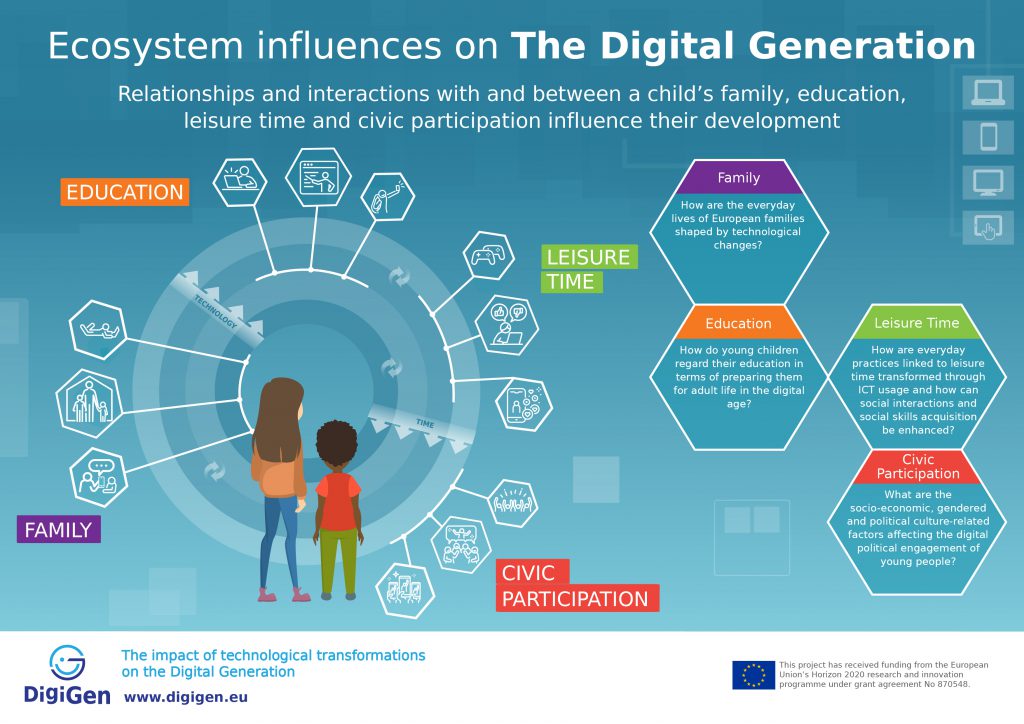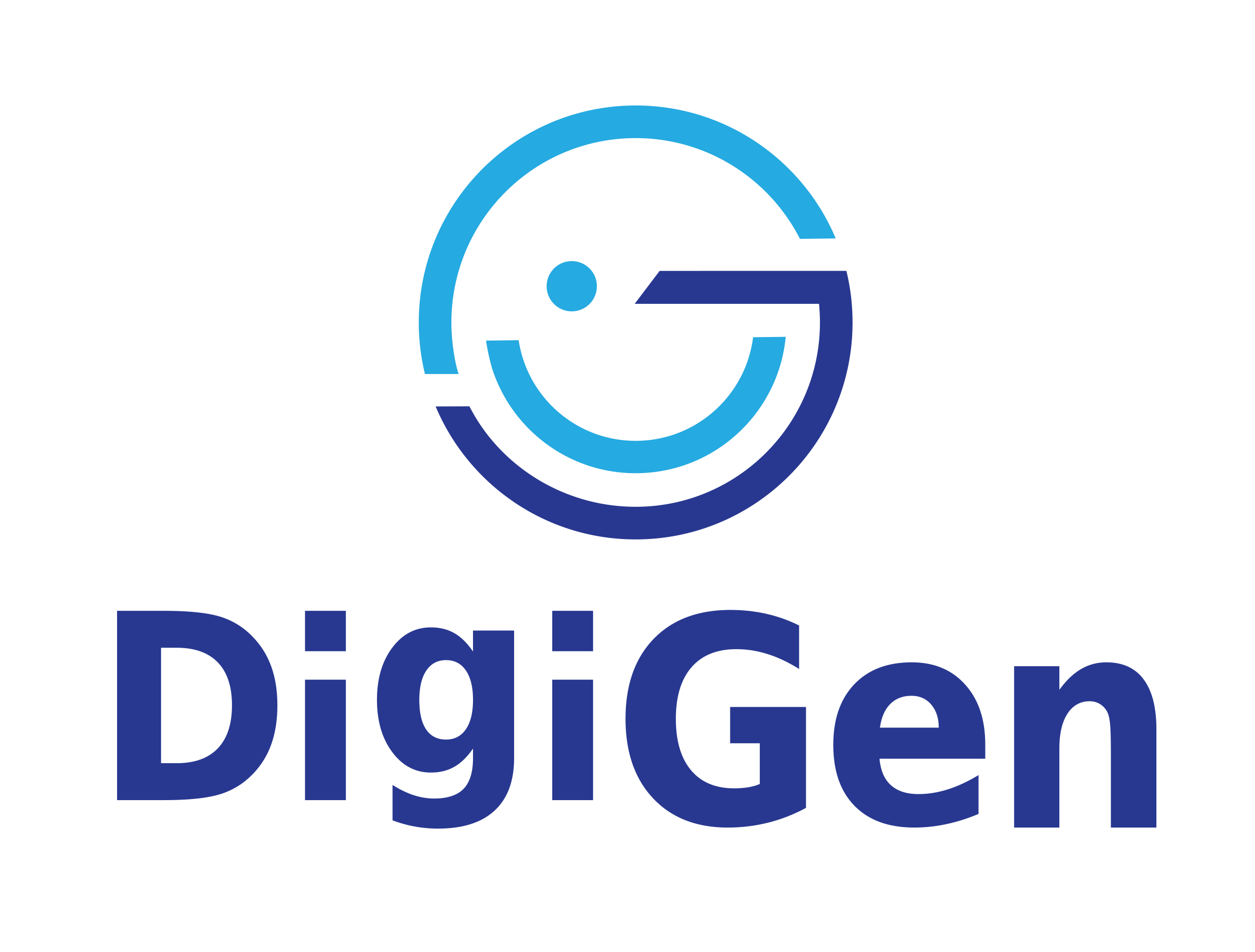On 22 June 2021, DigiGen hosted its mid-term policy forum online bringing together key policy, academic, and practice stakeholders working on securing safer and more beneficial use of digital technologies for children and young people. Participants came from across the EU, as well neighbouring countries like Norway, Turkey and Switzerland, and other world regions (Hong Kong, Canada, Brazil), showing the global reach of the DigiGen project.
During the forum, provisional findings of the project were presented and the participants were consulted on the most important directions of DigiGen’s future policy and practice engagement in view of the development of policy briefs and recommendations for a variety of audiences. The policy forum served to better understand the needs of the wide variety of stakeholders in order to fully reach the potential DigiGen’s data has to support them with evidence-based policy and practice recommendations.
The policy forum started with an opening message from Mariya Gabriel, European Commissioner for Innovation, Research, Culture, Education and Youth and was moderated by Jennifer Baker, a Brussels-based journalist reporting on tech policy and digital rights. The first session provided an overview of digital transformations and deprivation across Europe with a presentation on the diversity of technology use and access across Europe, focusing on digitally deprived, disengaged and unconfident children.
This was followed by a second session on Growing up in the digital age – DigiGen’s approach of the ecological systems theory. DigiGen builds on the ecological systems theory by Bronfenbrenner, placing the child within a system of relationships and interactions. As technology has become increasingly complex and available to children and young people, its impact should be taken into account when discussing the ecosystem influences on the digital generation. We see a need to consider the value of the digital activities along with the ideal uses of technology that form a bridge between the various ecosystems surrounding the digital generation and the technology itself.

A series of presentations were then given by different work package leaders on the impact of technology on children and young people’s everyday lives, providing first observations and analytical ideas from the research (the final results of the project will be published at a later stage). DigiGen researchers gave a snapshot of the research in each of the project’s focus areas, presented expected outcomes and opened the dialogue on how to use the upcoming data for policy and practice. The presentations of the DigiGen researchers are available to download here.
This was followed by a stakeholder panel discussion in the afternoon, where a variety of experts from different fields were invited to share their perspectives on the impact of digital technologies and their efforts towards a safer and more beneficial use of ICTs for children and young people. The panel included representatives from BIK Youth, Facebook, the Greek Safer Internet Centre, the Norwegian Ministry of Education, the Estonian Education and Youth Board, the West university of Timisoara, and the Deutsche Telekom Stiftung. This panel set the scene for discussions in breakout rooms on how to use DigiGen data to support policy and practice, with various points raised.
The importance of looking through the eyes of children was highlighted by many participants as essential, and the fact that their perception of the digital and physical world may be different to that of adults, not always seeing digital skills as separate from other skills. The idea of digital mainstreaming was raised, and the suggestion to incorporate the digital dimension in traditional policy and practice fields e.g. measures to prevent and tackle bullying, which has both offline and online dimensions today. Hence the need to focus on transversal rather than technical skills, including non-violence and conflict management, as well as how video games, social media, advertisements work. How to integrate these transversal digital skills in education and supporting teachers and parents will be an important challenge to address.
Transmission of information to policy-makers and practitioners was discussed, and various suggestions were made of tools to use: short videos, toolkits, press kits with numbers, pictures, social media cards, as well as trainings (including peer-to-peer) on the impact of digital transformations could be useful for different target groups: children, teachers, policy-makers, industry, parents.
The participants highlighted some key EU initiatives which could benefit from DigiGen data including the future Digital Education Hub (e.g. including digital citizenship education, media literacy skills), the European pillar of social rights action plan (the need to look at digitalization from a social perspective to address the digital divide and digital deprivation of children), and EU regulation on digital services and platforms (e.g. the Digital Services Act which will significantly shape the online world that children and youth interact in). The triangle of research, policy and practice represented through participants of the policy forum yielded many reflections which will serve as inspiration to further guide DigiGen researchers. The first three sessions of the policy forum are available on our DigiGen YouTube channel, and regular updates will be published on DigiGen social media and newsletter.

